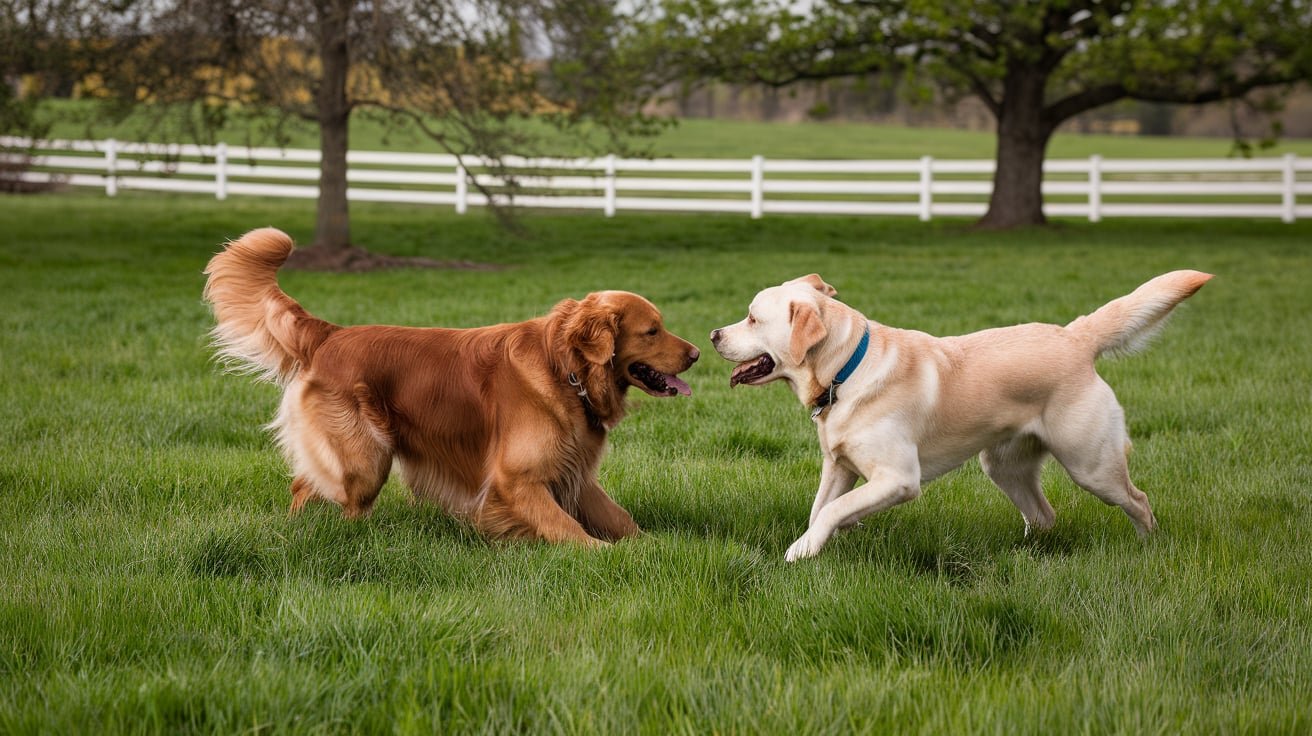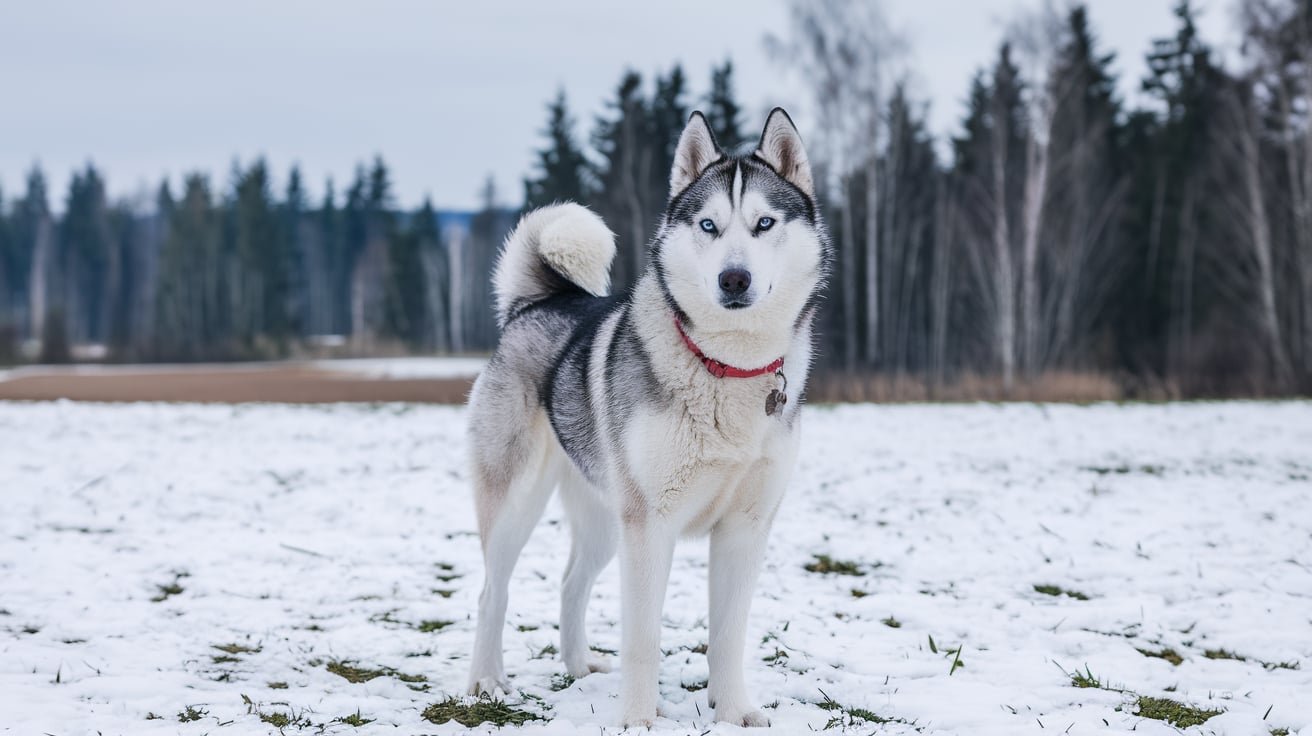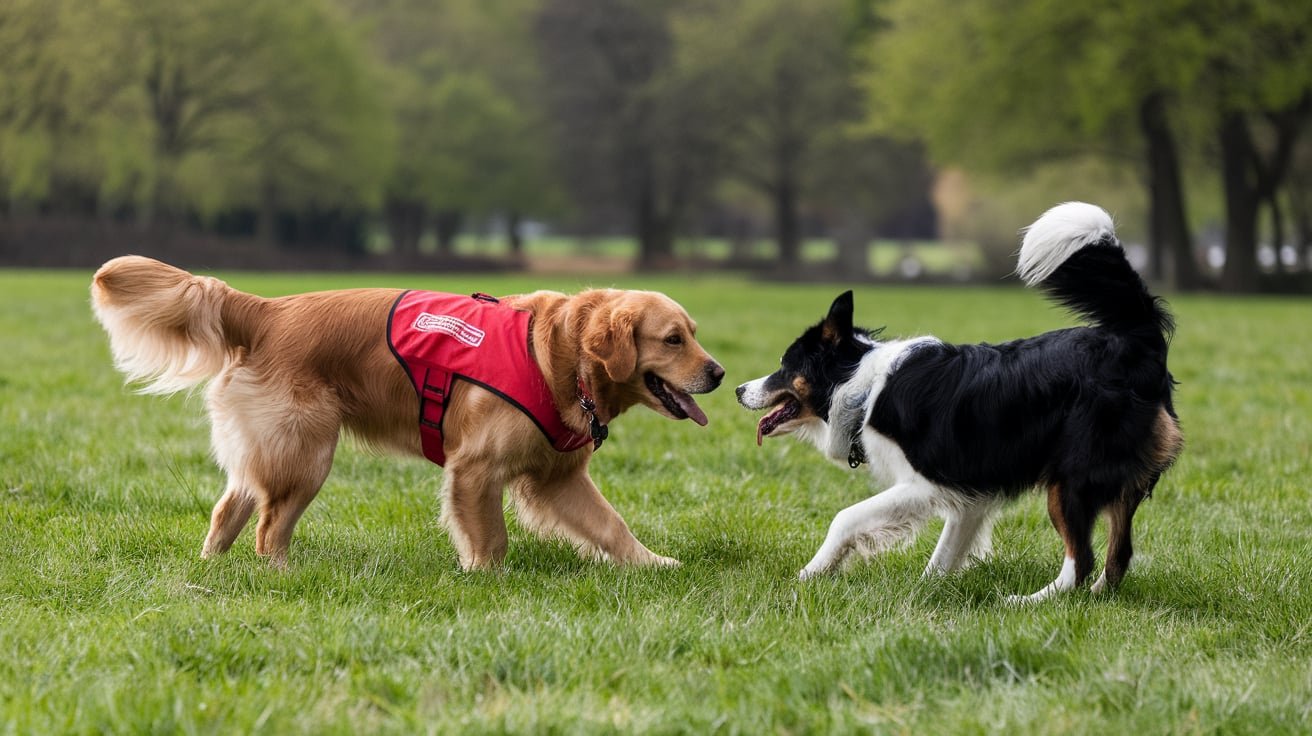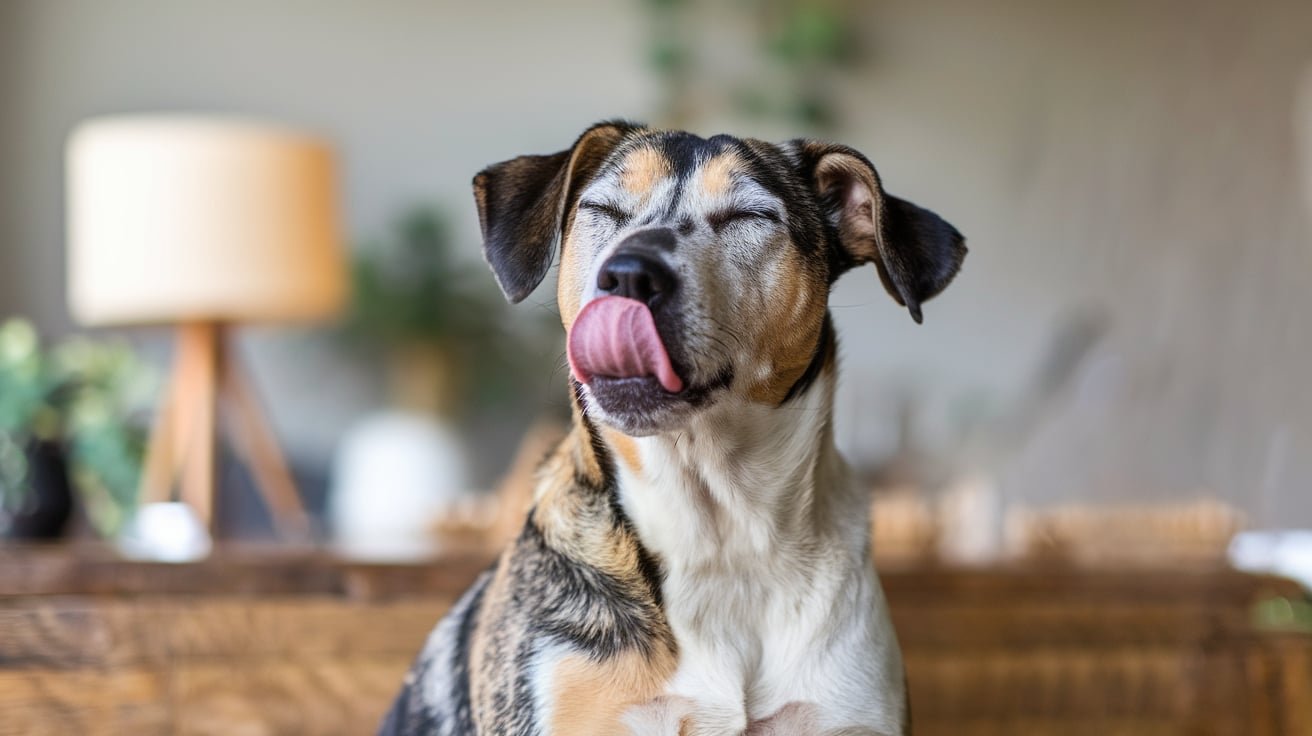Introduction To Large Dog Breeds For Families
When it comes to choosing a family dog, size matters! While small dogs can be adorable, many families prefer the strength and companionship that large dog breeds provide. These gentle giants can offer protection, loyalty, and love, making them perfect family pets. In this article, we’ll explore the best large dog breeds for families in the UK, their unique traits, and what you need to consider when bringing one into your home.
Why Choose a Large Dog Breed?
Large dogs often come with a host of benefits that can suit family life exceptionally well:
- Protective Nature: Many large dog breeds have natural protective instincts, which can provide a sense of security for families.
- Loyal Companionship: Large dogs tend to form strong bonds with their families and can be very affectionate.
- Playful Energy: While they may need more space, large dogs often have playful personalities that can entertain children for hours.
Anecdote: A Family’s Best Friend
A family I know has a Golden Retriever named Charlie. He’s not just a dog; he’s a family member. Every day, Charlie waits at the door when the kids come home from school, wagging his tail with pure excitement. His gentle nature allows him to play with the toddlers while providing comfort to the older kids when they’re feeling down. It’s stories like this that make choosing a large dog breed for a family a rewarding experience.
Top Large Dog Breeds for Families in the UK
Now that you understand the benefits, let’s delve into some of the best large dog breeds for families. Each breed has its own unique characteristics and care requirements, so it’s essential to find the right fit for your lifestyle.
1. Labrador Retriever: The Family Favorite
Labrador Retrievers are consistently one of the most popular dog breeds in the UK. They are friendly, intelligent, and eager to please, making them excellent family pets.
- Temperament: Labs are known for their playful and friendly nature. They get along well with children and other pets.
- Training: They are highly trainable and respond well to positive reinforcement techniques.
- Care: Regular exercise is crucial to keep them healthy and happy. They love outdoor activities, so family walks are a great option.
2. Golden Retriever: The Gentle Giant
Golden Retrievers are known for their friendly disposition and gentle nature. They are great with kids and are often used as therapy dogs due to their caring personality.
- Temperament: Golden Retrievers are sociable and eager to be part of family activities.
- Training: Like Labs, they are intelligent and easy to train. Early socialization is important.
- Care: They require regular grooming due to their thick coats and need ample exercise to keep them healthy.
Discover more about Golden Retrievers.
3. German Shepherd: The Loyal Guardian
German Shepherds are intelligent, loyal, and protective. They are often used in police and military roles, but they can also be wonderful family pets.
- Temperament: They are courageous and confident, often forming strong bonds with their families.
- Training: Early training and socialization are vital for German Shepherds to prevent protective instincts from becoming overly aggressive.
- Care: They require regular exercise and mental stimulation to stay happy.
Find out more about German Shepherds.
4. Bernese Mountain Dog: The Calm Companion
The Bernese Mountain Dog is a large and sturdy breed known for its gentle temperament. They are great with children and make excellent family companions.
- Temperament: Bernese Mountain Dogs are affectionate and calm, often referred to as gentle giants.
- Training: They are intelligent but can be stubborn, so consistency is key during training.
- Care: They thrive in cooler climates and require regular grooming due to their long coats.
5. Boxer: The Energetic Playmate
Boxers are known for their boundless energy and playful nature. They are great with children and have a protective instinct.
- Temperament: Boxers are loyal, energetic, and highly sociable. They love being around people.
- Training: They need consistent training and exercise to channel their energy positively.
- Care: Boxers have short coats and require minimal grooming but need regular exercise.
6. Newfoundland: The Sweet Water Rescue
The Newfoundland is a giant breed known for its swimming ability and gentle nature. They are excellent with children and are often referred to as “nature’s babysitters.”
- Temperament: Newfoundlands are friendly, calm, and patient, making them perfect for families.
- Training: They are intelligent but can be slow learners. Positive reinforcement works best.
- Care: They require regular grooming and exercise, and their size means they need space to move around.
Factors to Consider When Choosing a Large Dog
Before bringing a large dog into your home, it’s important to consider a few key factors:
Space
Large dogs typically need more space to move around. Ensure you have a suitable living environment that accommodates their size and activity level.
Exercise Needs
Many large dog breeds require regular exercise to keep them healthy. Make sure you can commit to daily walks, playtime, and mental stimulation.
Grooming Requirements
Some large breeds have long coats that require regular grooming. Be prepared to invest time in maintaining their fur, or consider breeds with lower grooming needs.
Family Lifestyle
Consider your family’s lifestyle when choosing a breed. Some large dogs may be more suitable for active families, while others may do well in more relaxed environments.
Training Your Large Family Dog: A Step-by-Step Guide
Training your large dog is essential for their well-being and your peace of mind. Here’s a simple guide to get started:
Step 1: Start Early
Begin training your puppy as soon as you bring them home. Early training helps establish good behavior from the start.
Step 2: Socialization
Expose your dog to various people, pets, and environments. Socialization is crucial for reducing anxiety and promoting confidence.
Step 3: Basic Commands
Teach basic commands such as “sit,” “stay,” and “come.” Use positive reinforcement techniques like treats and praise.
Step 4: Consistency
Be consistent with your commands and expectations. Consistency helps your dog understand what is required of them.
Step 5: Regular Exercise
Provide ample exercise to keep your dog physically and mentally stimulated. Regular walks, playtime, and training sessions are key.
Step 6: Patience and Understanding
Training takes time and patience. Be understanding of your dog’s progress and adjust your methods as needed.
Frequently Asked Questions About Large Dog Breeds for Families
What are the best large dog breeds for families?
Some of the best large dog breeds for families in the UK include Labrador Retrievers, Golden Retrievers, German Shepherds, and Boxers.
How much exercise do large dogs need?
Most large dog breeds require at least 1 hour of exercise each day, which can include walks, playtime, and training sessions.
Are large dogs good with children?
Many large dog breeds are excellent with children, especially those known for their gentle nature, like Newfoundlands and Bernese Mountain Dogs.
Conclusion: Finding the Right Large Dog for Your Family
Choosing a large dog breed for your family can be a rewarding decision that brings joy, companionship, and protection. Each breed has its unique traits, so it’s important to find one that fits well with your family’s lifestyle. Whether you opt for the playful Labrador Retriever or the calm Bernese Mountain Dog, with proper training and care, your large dog will quickly become a beloved member of the family.
For more information on dog breeds and care tips, visit The Kennel Club or Dogs Trust.



